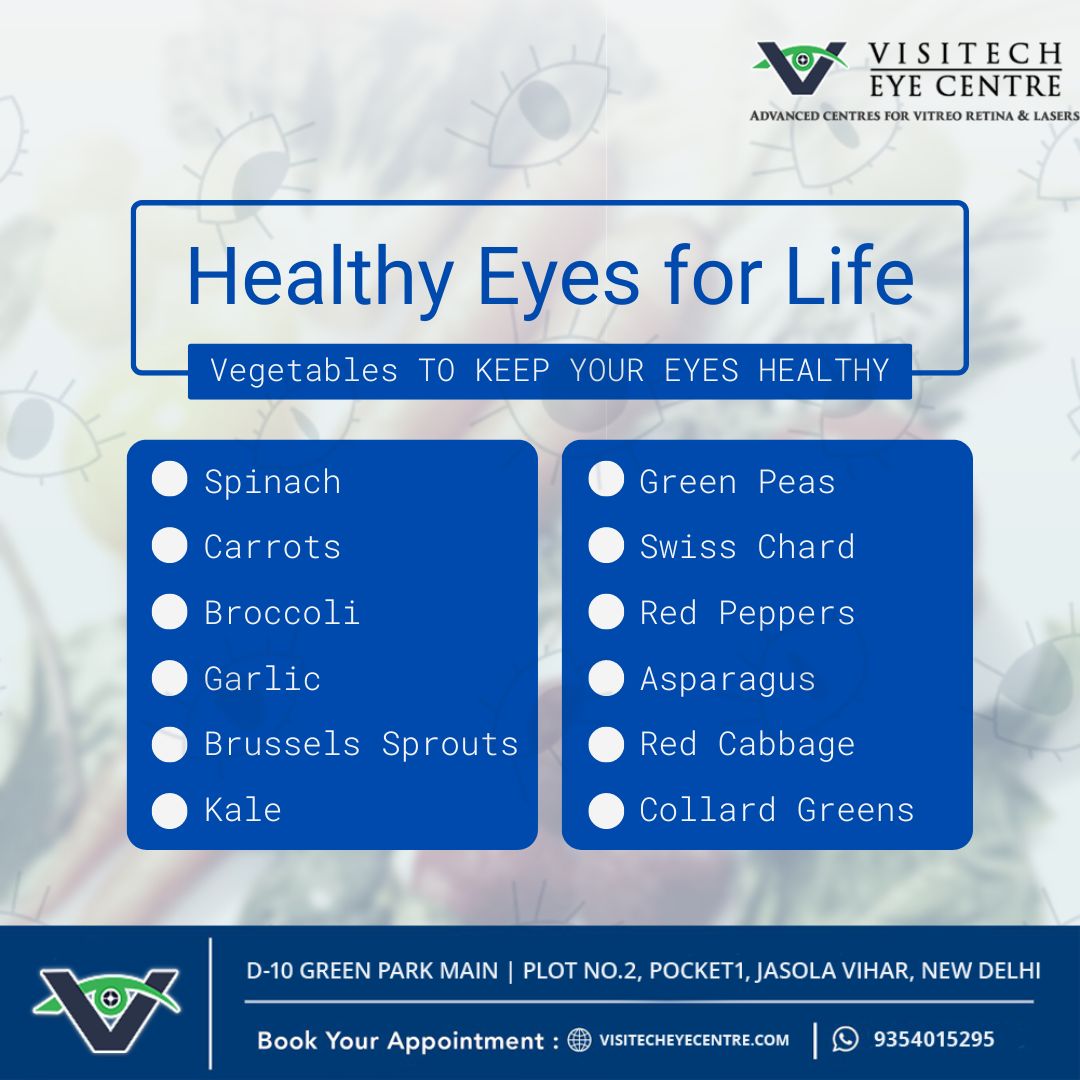Eyes are our windows to the world, allowing us to experience the beauty around us. To maintain optimal eye health, it’s essential to include nutrients that support vision in our diet. Vegetables, rich in vitamins, minerals, and antioxidants, play a crucial role in promoting healthy eyes. Let’s explore some of the best vegetables known for their eye health benefits.
incorporating a variety of colorful vegetables into your diet can significantly benefit your eye health. Vegetables such as carrots, spinach, kale, bell peppers, sweet potatoes, broccoli, tomatoes, Brussels sprouts, corn, collard greens, pumpkin, asparagus, beets, and turnip greens are rich in vitamins, minerals, and antioxidants that support healthy vision and may reduce the risk of eye diseases such as cataracts and age-related macular degeneration (AMD). Including these vegetables in your meals can help protect your eyes from oxidative damage and maintain good vision throughout your life.

Vegetables to Keep your Eyes Healthy:
- Carrots: Carrots are famous for their high beta-carotene content, which the body converts into vitamin A. Vitamin A is essential for maintaining good vision, especially in low light. It also helps prevent night blindness and age-related macular degeneration (AMD), a leading cause of vision loss in older adults.
- Spinach: Spinach is packed with lutein and zeaxanthin, two powerful antioxidants that are beneficial for eye health. These compounds help protect the eyes from harmful light waves, reduce the risk of chronic eye diseases, and improve overall vision.
- Kale: Like spinach, kale is rich in lutein and zeaxanthin, making it an excellent choice for eye health. Additionally, kale is a good source of vitamins C and E, which are antioxidants that protect the eyes from damage caused by free radicals.
- Bell Peppers: Bell peppers, especially the red and yellow varieties, are loaded with vitamin C, which is essential for maintaining healthy blood vessels in the eyes. Vitamin C also supports the health of the retina and may help prevent cataracts.
- Sweet Potatoes: Sweet potatoes are another excellent source of beta-carotene, which the body converts into vitamin A. They also provide a healthy dose of vitamin E, an antioxidant that protects the eyes from oxidative damage.
- Broccoli: Broccoli is rich in both lutein and vitamin C, making it a powerhouse vegetable for eye health. Vitamin C supports the blood vessels in the eyes and may reduce the risk of cataracts.
- Tomatoes: Tomatoes are high in lycopene, a powerful antioxidant that may help prevent light-induced damage to the retina. Lycopene is more easily absorbed by the body when tomatoes are cooked.
- Carrots: Carrots are well-known for their high beta-carotene content, which is converted into vitamin A in the body. Vitamin A is essential for good vision, especially in low light. It also helps prevent night blindness and age-related macular degeneration (AMD).
- Brussels Sprouts: Brussels sprouts are packed with antioxidants, including lutein and zeaxanthin, which can help protect the eyes from damage. They are also a good source of vitamin C, which supports eye health.
- Corn: Corn contains lutein and zeaxanthin, two antioxidants that are important for eye health. These nutrients help protect the eyes from harmful light and may reduce the risk of cataracts and AMD.
Including these vegetables in your diet can help support healthy eyes and reduce the risk of developing eye diseases. Try to incorporate a variety of colorful vegetables into your meals to ensure you’re getting a wide range of nutrients beneficial for eye health.

1cassino has a pretty clean layout, easy to navigate. Found a couple of games I hadn’t seen before, which was cool. Give it a look at 1cassino.
Hey all! Took a spin on 169betcasino. It’s got a decent selection of games, and the layout is easy to navigate. Might be worth a look if you’re looking for something new: 169betcasino